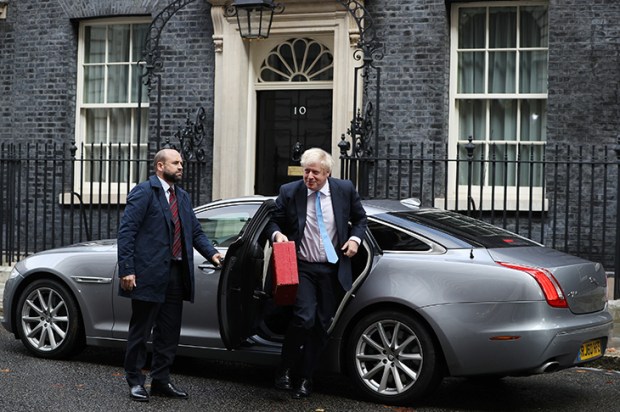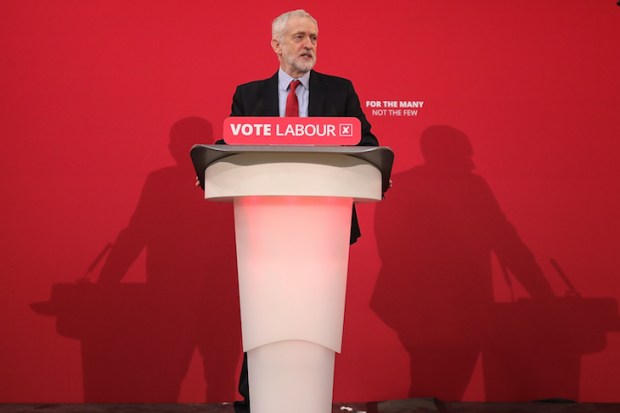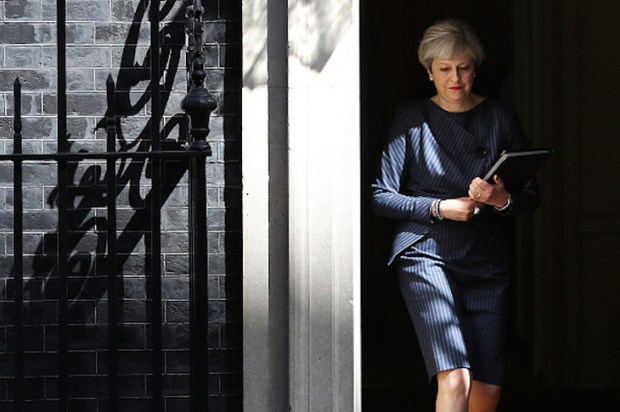The case for Labour moderates leaving their party strengthens by the day. Jeremy Corbyn’s behaviour demonstrates that he is not going to change. His decision to attend a Seder with Jewdas, a fringe group who have claimed that the anti-Semitism scandal is being whipped up by his political opponents, shows how determined he is to stay in his own comfort zone. A poll showing that 80 per cent of Labour members think he’s doing a good job as leader highlights how impossible it would be to remove him.
But a more interesting question than whether Labour moderates should go is what they should do once they have. One option would be to set themselves up as the Labour party-in-exile. They could declare that their party has been taken over by a hard-left fringe antithetical to its real traditions and that they are leaving to keep ‘true Labour’ alive until they can take it back.
This approach might work if most Labour MPs were prepared to leave. It would be akin to a declaration of independence by the Parliamentary Labour Party. In the House of Commons, this new Labour party would step into the shoes of the old one as the official opposition. It would have four years to prepare itself for the next general election. But the reality is that the overwhelming majority of Labour MPs are not ready for such a dramatic step.
Any small splinter claiming to be the true heirs to Attlee, Gaitskell and Blair would also face problems. First of all, the official Labour party would select candidates against them at the next election — and few MPs would be confident of having a sufficiently large personal following to hang on in these circumstances. The group would also have to generate its own publicity once the initial excitement of their defection had worn off. As Vince Cable’s stalled leadership of the Liberal Democrats proves, this isn’t easy even for a former cabinet minister and experienced media performer. Another problem would be that the group’s explicitly Labour nature would make it harder for it to attract converts from other parties.
A ‘true Labour’ party would be a classic social democratic party. But across Europe, these parties are in crisis. The French Socialists came fifth in the 2017 presidential election, the German Social Democrats have just recorded their worst result since the formation of the Federal Republic, and in Italy earlier this year, the Partito Democratico received less than 20 per cent of the vote. The UK Labour party managed to put on votes at the last election by essentially fusing a traditional social democratic party with a radical left one. Any ‘true Labour’ party would not be able to do that.
The other much-mooted option is the establishment of an explicitly pro-EU political party. There are, however, problems with this idea too. For one thing, it is likely to lose appeal with time. Once Britain leaves the EU in March 2019 and then the single market in December 2020, it will become harder to make the argument for going back in. The force of the status quo will be with the new arrangements that the UK has negotiated.
The next problem is what kind of pro-EU case to make. Would this party just want to go back in on the old terms (in which case Britain could never really lead in Europe)? Or would they want Britain to go the whole hog and join the single currency so that it can influence the EU’s most important political and economic project?
There is almost certainly room for a pro-EU party in British politics. But it would have very similar difficulties to Ukip. For even if it had a decent level of national support, it would struggle to convert that into parliamentary seats. In 2015, Ukip got more than 12 per cent of the vote but won in only one constituency.
Some maintain that the case for a new centrist party is much broader than just the EU. They argue that Labour under Corbyn has moved massively to the left and the Tories under May are a very different party than under David Cameron. They contend that this leaves a gap in the centre that somebody should be able to fill. (Though, interestingly the Liberal Democrats have conspicuously failed to achieve it.)
Unusually, neither the Tories nor Labour are led by their liberal wings at present. But it is also the case that the Tory move towards a more nationalist posture has been halted by the general election, and the political repositioning that has followed. May’s chief of staff is now Gavin Barwell, a former Croydon MP who is one of the Tories most worried about how the party appeals to the more diverse parts of Britain. It is also entirely possible that the next Tory leadership contest, which is still likely to happen before the next election despite the recent improvement in the Prime Minister’s standing, will see the Tories elect a leader with more liberal leanings than May.
In terms of economics, it is hard to see where the big centrist-shaped gap is. Labour might have moved away from the centre, but the Tories keep dropping heavy hints that they are prepared to put up taxes to spend more on public services. This, in purely economic terms, puts today’s Conservative party to the left of David Cameron’s. In 2015, he fought the election on a pledge not to put up any of the principal forms of taxation. The most surprising thing is that with the tax burden set to rise to a 40-year high, no party is outlining a tax-cutting agenda.
The strongest argument in favour of Labour moderates quitting their party isn’t about electoral success, but morality. If you think the election of your leader as prime minister would be against the national interest, then you have an obligation to act. But no one should think that the path to power for any Labour MP brave enough to leave will be easy or short. Those hoping for a realignment of the British political system à la Macron will be disappointed.
Got something to add? Join the discussion and comment below.
Get 10 issues for just $10
Subscribe to The Spectator Australia today for the next 10 magazine issues, plus full online access, for just $10.
You might disagree with half of it, but you’ll enjoy reading all of it. Try your first month for free, then just $2 a week for the remainder of your first year.















Comments
Don't miss out
Join the conversation with other Spectator Australia readers. Subscribe to leave a comment.
SUBSCRIBEAlready a subscriber? Log in